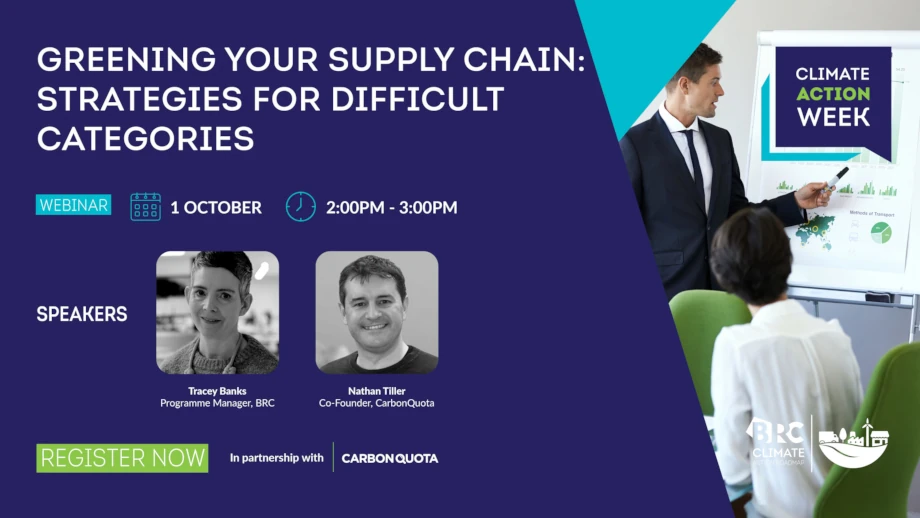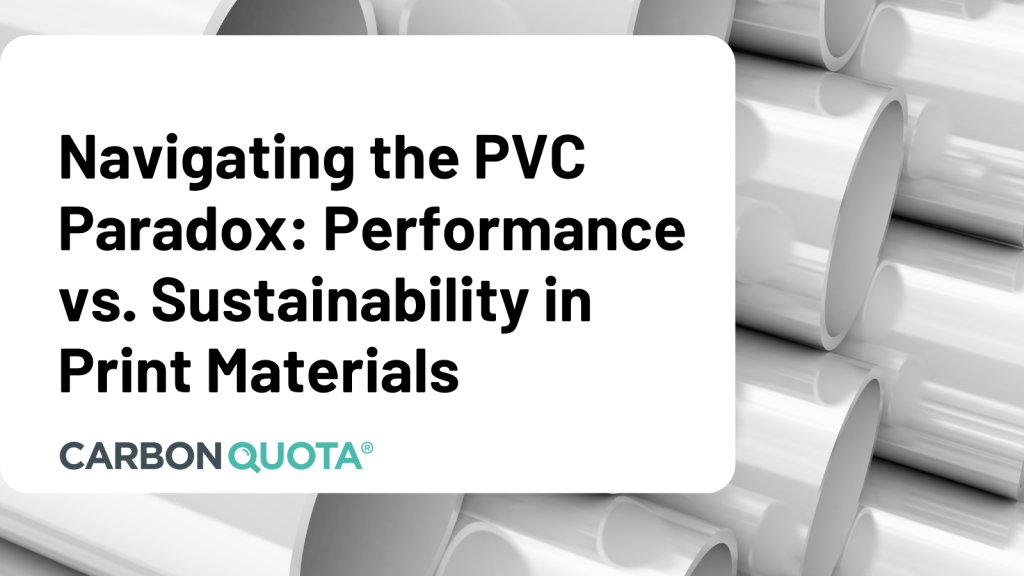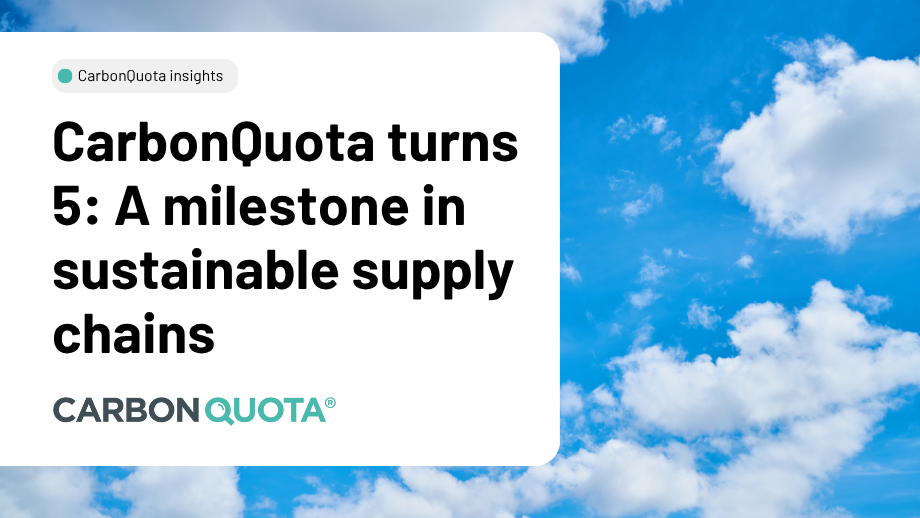The webinar covered a lot of ground (in a short amount of time) – so here’s a summary of the key topics and takeaways from the event:
CarbonQuota was delighted to partner with the British Retail Consortium for Climate Action Week, hosting a case study focussed webinar exploring Greening Your Supply Chain: Strategies for Difficult Categories.
Presented by Nathan Tiller, CarbonQuota Co-Founder, the webinar focused on addressing challenges in measuring and reducing the carbon footprint across complex areas of the supply chain – with a special emphasis on categories that are harder to decarbonise, such as packaging, logistics and marketing.
Understanding carbon maturity levels
Organisations are at different stages of carbon maturity, ranging from “Starting Out” to “Leading the Way.” These stages progress through Increasing Visibility, Influencing the Supply Chain, Driving Reduction, through to leading the charge in sustainability.
The key workstreams on this journey include your Operations, your Products and Services, your Suppliers and finally Strategy and Governance.
Importance of good data in supply chain decarbonisation
Reliable and granular data are crucial for understanding and reducing carbon footprints. The data can range from operational data (buildings, vehicles, people) to purchasing data for products and services – and ultimately primary data from suppliers (when the time is right).
We collaborated with a major home and personal care FMCG company to gain high-quality, reliable data, which helped identify that paper mill inefficiency and pre-fill location were key drivers of carbon emissions.
The role of supplier relationships
Strong supplier relationships are essential in achieving a more sustainable supply chain. Collaboration can lead to significant insights and improvements in areas like outdoor display and packaging.
We worked with a high-street retailer and their packaging provider to show how strong collaboration led to insights into carbon intensity and the exploration of alternative materials.
Avoiding survey fatigue in data collection
Data requests based on GHG Protocol categories are often hard for stakeholders to respond to.
Key takeaway: We suggest you configure templates in sector-specific language – aligning data requests with procurement categories and working with sector specialists to improve compliance and data quality.
There are trade-offs ….
Using the example of drinks packaging we explored how, despite the claims from suppliers, there is no optimum solution: For example:
Plastic – Low energy and cost but contributes to litter and contains forever chemicals.
Paper – Renewable, but linked to deforestation.
Aluminium – Recyclable, but carbon-intensive.
Glass – Natural, but heavy to transport.
Key takeaway: It’s crucial to understand and accept the trade-offs. By using Lifecycle Assessments, you can understand the holistic picture and start to make science-based decisions.
Carbon measurement in logistics
Logistics, after Scope 1 and 2 emissions, is one of the best areas to focus on for carbon reduction.
Key points:
– Data in logistics is abundant but needs strategic use
– Electrification is still far off for heavy goods, so don’t obsess about it
– Ocean freight is low carbon but has other environmental impacts
Carbon Accounting is complex!
Carbon is a multi-dimensional topic that requires you to align with product knowledge, data sources, and organisational strategies.
If you do one thing, make sure you ask questions tailored to the person you need to answer them – this probably means “speaking their language” in specifications and data points that they have readily available.
If in doubt, always look for fossil fuel consumption in operations and supply chains. Reducing fossil fuel usage is the key driver in combating climate change.
This webinar provided actionable insights and strategies for organisations looking to advance their carbon maturity and emphasised the importance of good data, strong supplier collaboration and understanding trade-offs in decarbonisation efforts.
Want to learn more? Watch the webinar On Demand here.
Get in touch if you have any questions about measuring and reducing carbon for your organisation.



